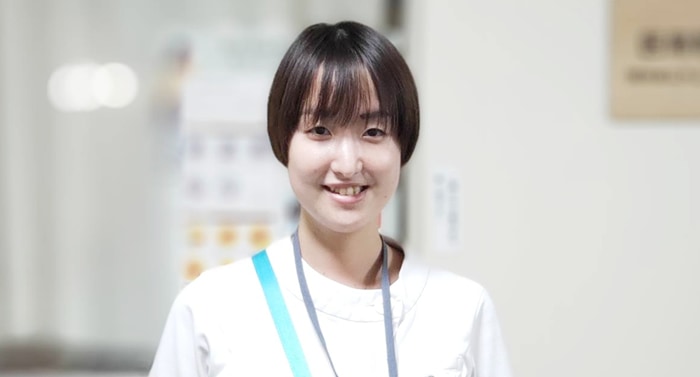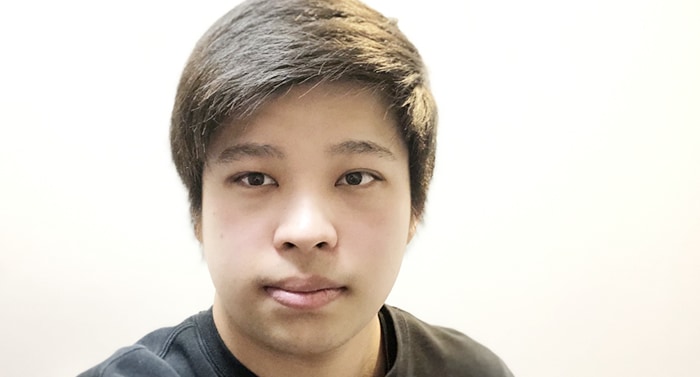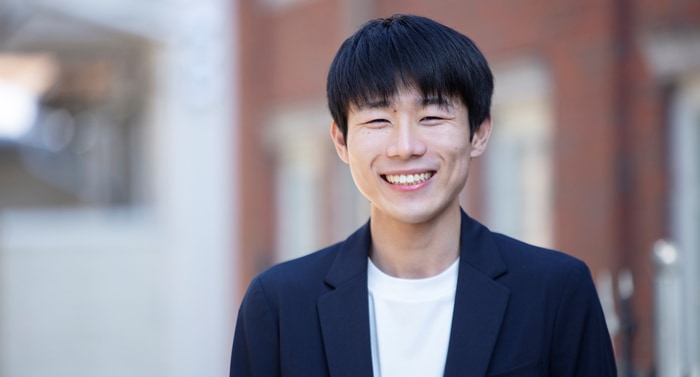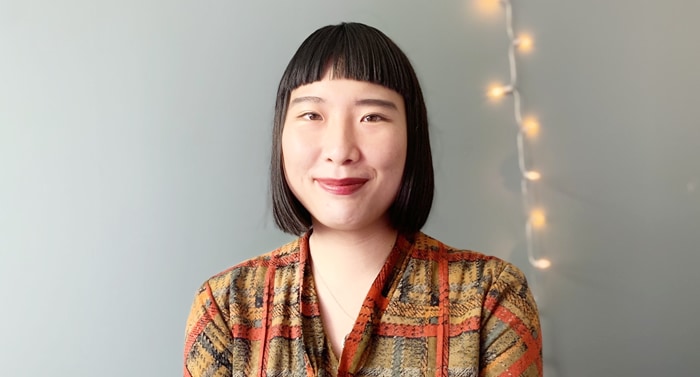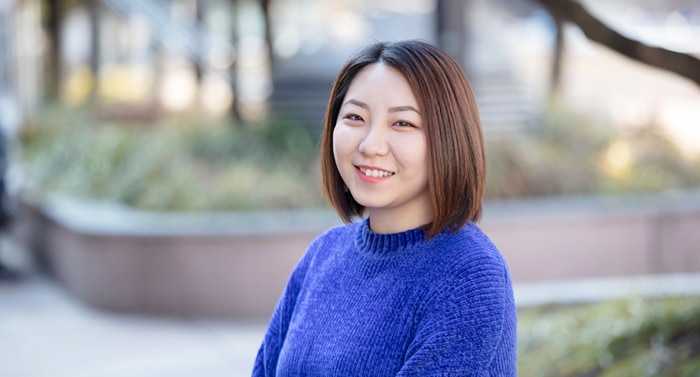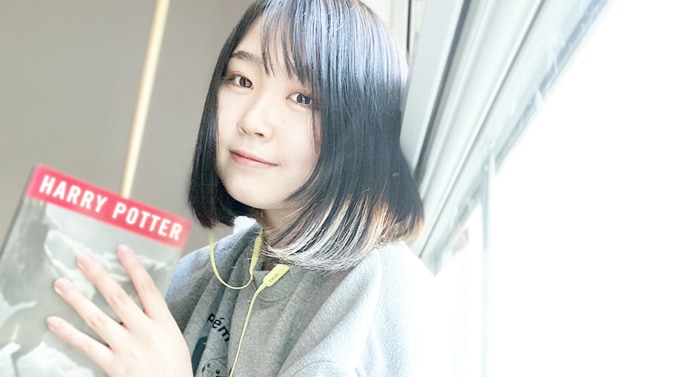子ども達のレジリエンス
CHILDREN’S RESILIENCE
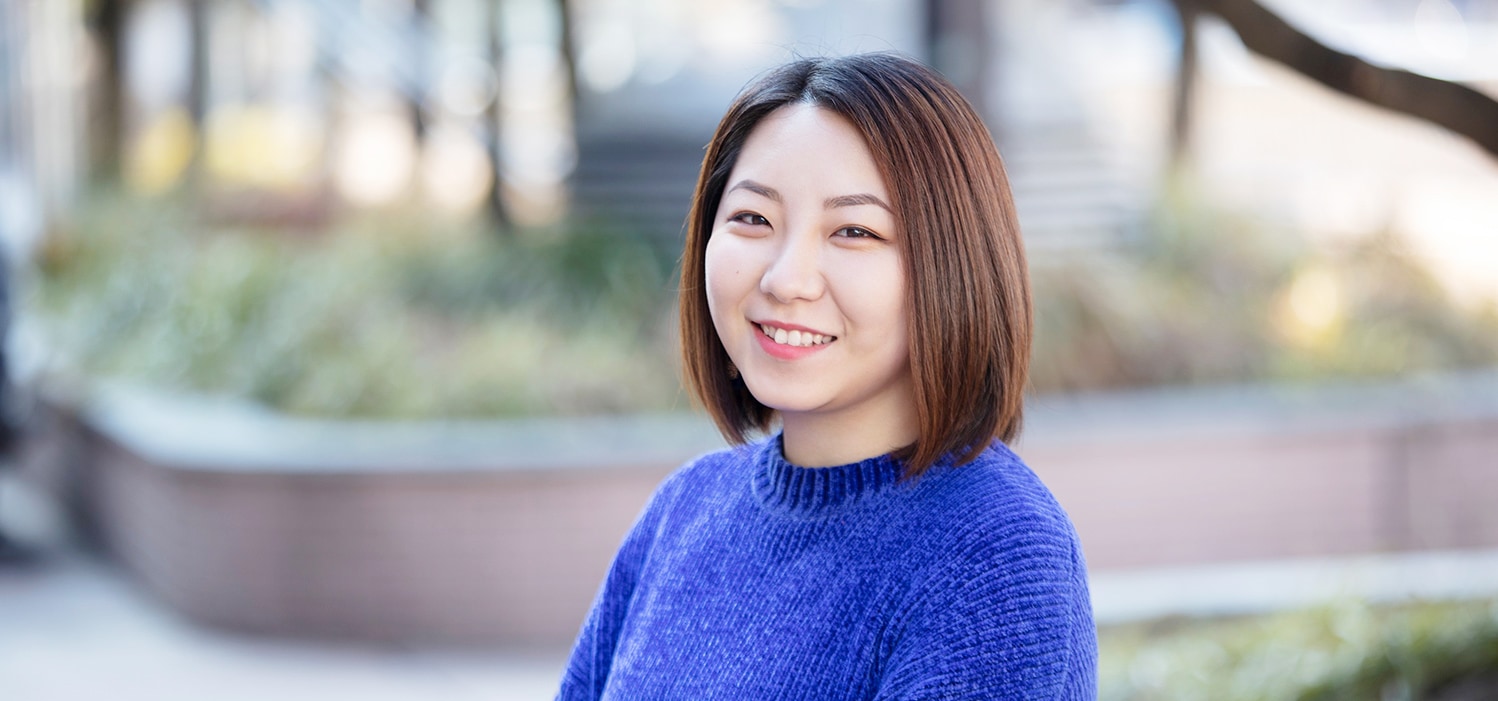
RESILIENCE05
「語る」ことの持つ力
The Power of Story Telling.
三浦 七海 | 宮城県名取市
Nanami Miura (Natori, Miyagi)
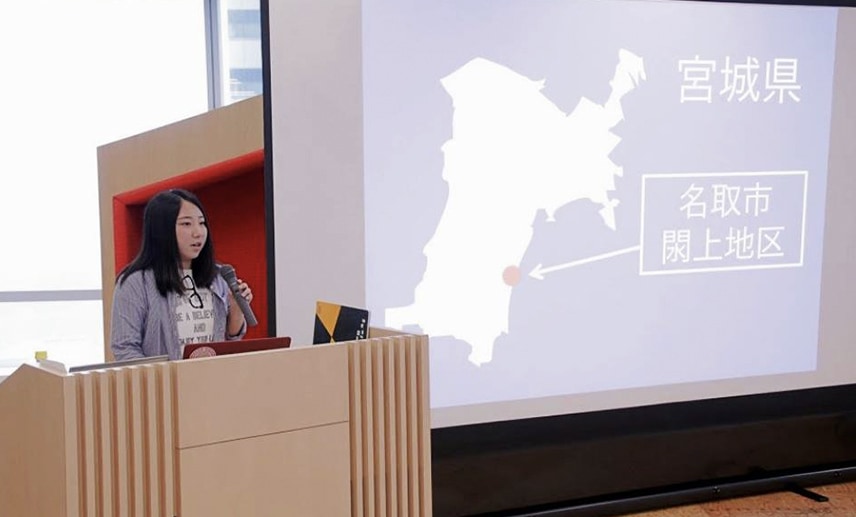
「語る」ことの持つ力
「津波だー!」
体育館に響き渡った声。
何が起きたのか訳もわからずに、人の走る流れのままに走った。
小学5年生だった私は、家族4人で宮城県名取市閖上地区に住んでいました。
いつも通りに家を出て、寄り道しながら学校へ行く。
いつも通りに授業はちょっと退屈で、
晴々とした空を見ながら、「こら!よそ見をするな」と怒られる。
そんな“いつも通り”は、ゴゴゴーと大きな地鳴りと共に、壊されていきました。
あの地震は、まるで子どもがドールハウスを思いっきり揺さぶったような揺れで、今までにない恐怖を感じました。
*
揺れが収まり、校舎の3階廊下へ避難。
すでに帰っていた生徒も、先生たちが学校へ呼び戻していた。
繰り返される余震や先生たちの尋常じゃない雰囲気に怯えながら、私は廊下に友達と座り込み大泣きするしかなかった。
母が海の近くにある自宅から車で駆けつけて来た。
でも、3年生の弟がどこにいるかは分からない。
「弟を探してくるから。もしいたら、姉弟一緒にいなさいね!」
と声をかけられ、母は来た道を走っていった。
その後も学校には地域の人が避難しにきたり、子どもを迎えにきた親たちで溢れた。
そんな中、怒号やラジオの声の中から聞こえて来たのは“津波”というワード。
もちろん教科書では習ったし、学校で避難訓練もやったことがある。
でも実際に来るなんてことは想像できなかった。
すし詰め状態の中、先生たちもどこに誰がいるかは把握しきれてない様子。
「早く子どもを帰してください!」
「津波は来るんですか!」
「私の子どもはどこにいるんですか!」
「津波の来る警報がでているので帰せません!」
「確認中なので待ってください!」
大人たちの大きな声が、学校中に響き渡っていて、耳を塞ぎたかった。
しばらくすると
「みなさん体育館に移動してください!」
と指示があり、みんなで一斉に歩き出す。
あのとき、通り過ぎた教室の机の下に弟がいたことは、
混乱の中でかき消されてしまった。
すでに地震発生から1時間以上が経っていた。
途中の渡り廊下で母が学校に着き、私の後ろからも弟がついて来ていて、
無事だったと少し安心した。
みんな学年ごとに並んでいて、私もその場で座りかけた瞬間
「津波だー!」
体育館に響き渡った声。
何が起きたのか訳もわからずに、人の走る流れのままに走った。
屋上へ出ると、校庭に黒い濁流が流れて来ていた。
ぐしゃぐしゃになった何かの残骸、車、船、家、人が流れていた。
寒くて雪も降る中、まるで映画のような光景に、私は怖さも感じられず、茫然とする。
見てはいけないものなのか、目に焼き付けて覚えた方がいいのか。
津波という言葉の意味は理解するも、ことが大きすぎて訳が分からなかった。
大人は泣き叫び、子どもはその様子に怯えて泣く子か、私と同じような子がいた。
津波の勢いが収まり、校舎の3階の教室で一晩を過ごすことになった。
カーテンを外し、段ボールや新聞紙を敷き、ゴミ袋に穴を開けて被り、何とか暖をとる。
外では爆発音が鳴り響き、火事も起きていて、休まるどころではなかった。
避難していた母たちは、「〇〇くん、妹の〇〇ちゃん、無事です」
と知っているお母さんたちへメールを送っていた。
そこで、父も近くまでは来ているが、津波で来れないことを知れた。
家族全員無事だった。
*
次の日の朝、友達と再び屋上へ。
津波が来ていた時から感じていた臭いが、もっと強烈になっていた。
ヘドロやガソリン、何かが焦げた匂い、ありとあらゆる臭いが混ざり合った
なんとも表せない異臭。
破壊された町は、例えると教科書で見た空爆後のような様子。
津波の恐ろしさというのはまだ理解できなかったが、脅威は知った。
朝からは、自衛隊が助けに来てくれて、物資や食料が少しずつ配られていた。
こんなにも、パンひとつに安心感や温かみを覚えたことはない。
でも、次の物資がいつもらえるかは分からない。
クラスへと配られたペットボトルの水を、自分のところへ隠すような大人が出て来た。
こんなのは、まだ序の口だった。
教室では、まだ親に会えてない同級生がいる。
「もうさ、俺の母さんと姉ちゃん、多分死んじゃったよ」
そう言われた私でも、「大丈夫だよ」なんて、
嘘でも言えないことくらいはわかっていた。
「まだ分からないよ」
と声を出すので精一杯。
午後にはバスに乗って、内陸部にある避難所へ向かうことに。
バスまでの道のりで、足場が悪いところは自衛隊の方がおぶってくれた。
避難所である体育館に着くと、人でごった返していた。
私の家族4人は、2畳にもいかないスペースにまとまり、
1枚の毛布を敷いて、もう1枚で被り、私はやっと寝ることができた。
その日から16日間の避難生活が始まる。
朝は5時に起き、食事は自衛隊の方々が作るおにぎりと味噌汁が朝夕の2回。
物資が届くたびに大人たちは列に並んで受け取る。
壁なんていうプライバシーのかけらもない。
夜19時には毛布を敷き始めて、21時には消灯。
寝る時間は長いのに、いつも眠れた感じがしなかった。
地震から1週間経過し、家族で自宅がある閖上へ行った。
道中に見た景色、異臭は、あの時のままで、道路が少し片付けられたくらい。
やっと着いた場所に、家は無かった。
1階のフローリングから上が綺麗に流されていた。
ここがどんな建物があったかなんて簡単に思い出せなくなっているくらい、
どこか知らない町に来たように感じた。
生活が慣れた頃、怒号がたびたび響き渡るようになった。
「誰だー!物資、勝手に盗っていくなー!」
みんなに行き渡るはずの物資が盗まれることが多くなった。
手伝うフリをしながら、勝手に持ち去る大人。
盗みやルール違反を「生きるためだ!」と正当化しようとする大人。
シェアして使うものは、自分たちの好きに使うのに、
それが子どもであると理由も聞かずに怒鳴り散らす大人。
地震の前は、みんなみんな、他愛もないあいさつや会話をしていた地域の大人たち。
そんな、いつもいた大人は、ほとんどいなくなりました。
体育館の後ろの壁には、随時情報が更新される。
亡くなった方の名前も、毎日、毎日張り出されていった。
大好きだった幼稚園の先生の名前を見た時は、悲しくて泣いた。
そのあとも、知っている名前がたくさん載せられる。
小学校では、あの日学校休んでいた1人の同級生が亡くなった。
でも、だんだんと、それも新しい日常になり
「あ、まただ」
と思うばかりで、ほとんど麻痺しているような感じだった。
避難所は、いっときは思いがけない支援で笑顔にはなるものの、
誰かがいつも泣いていて、怒っていて、沈んでいるところだった。
そんな避難所生活を終えて、父の会社が借りてくれた隣市のアパートへ移ることに。
千葉に住む母の友人が、物資を届けようと
連日の報道を見すぎて帯状疱疹になってしまいながらも、
お米や布団や食料、私の大好きないちごをたくさん持って来てくれた。
新しく生活するところには、壁があり、扉があり、温かい部屋があり、お風呂があり、
広々とした布団があり、それぞれパジャマを来て、心置きなくゆっくり眠れる。
今まで、当たり前だと思っていた生活が、本当は当たり前ではないこと。
子どもながらも、ひとつひとつがあたたかく感じた。
4月中旬になり、市内の内陸部にある小学校へ、間借りする形で学校が再開した。
今までとは違う雰囲気に高揚感もありながら、
久しぶりにランドセルを背負って登校した。
新6年生として最初に集まった時、先生たちの顔は笑顔だけど、
どこか疲れているように感じた。
避難所にいるときも、自転車で各所を回って2、3日に1回は会いに来てくれた。
先生たちから発せられる言葉は、生徒たちのトラウマの引き金を引かないように、
悩んで選んだのだろうなと思う言葉ばかり。
「みんなで頑張ろう!」などの、テンプレのような言葉はひとつもなかった。
数ヶ月前に大きな災害があったことを不意に忘れるくらい、
授業は今まで通りになっていく。
支援物資でいただいた学習道具や遊び道具は余るほどあり、
勉強や休み時間に困ることはなかった。
でも、だんだんと間借り先の学校の生徒から閖上小学校に対して、
嫌がらせを受けるように。
低学年が植えたアサガオの芽を全て抜き取られ、
遊具は間借り先の学校の生徒が優先で、並んでいたらすぐに譲り、
自分たちが使える校庭の範囲は狭められていく。
授業参観で来ていたある保護者には、間借り先の学校の生徒からすれ違いざまに
「あ、タダ飯食ってる奴らの母ちゃんだ」
と捨て台詞を吐き、その子は何事もなかったかのように走り去った。
どうやら、一部の間借り先の学校の生徒の家庭では
閖上小学校のことをよく思っていなかった。
何故なのかは、分からない。
現状、間借りさせてもらっている身であり、間借り先の小学校へはペコペコ状態。
「そうだったのね、ちゃんと言ってくれてありがとう」
「嫌な思いさせてごめんね」
と先生は言ってくれるものの、生徒、先生、保護者、みんな泣き寝入りだった。
そんな1年を過ごし、私は閖上小学校を卒業した。
*
4月からは、家の再建先の学区に合わせて、別の中学校へ進むことに。
その中学校は、間借りしていた小学校を含め3つの地区が集まった学校で、
ほとんどが「はじめまして」といった状態。
入学式を終えクラスに戻り、保護者が教室の後ろで見守る中、自己紹介をすることに。
自分の番になり、名前と出身小学校を言うと、後ろから
「うわ。なんで閖上がいるの」
とはっきり聞こえ、一瞬時間が止まった。
ただの比喩ではなく、自分の中では本当に止まった。
後ろにいた何人かの親から聞こえた。
閖上出身だということに誇りとまではいかないが、
何が悪いの?と思っていたこともあり、少しイラッとした。
でも席についた途端、椅子に縛り付けられる感覚があった。
イジメは月日が経過するごとに、だんだんエスカレートしていく。
仲間はずれや無視は日常茶飯事。
部活では、カバンに砂利を綺麗に敷き詰められ、クラスではものを隠され捨てられる。
言葉では
「支援物資をもらってずるい」
「閖上に帰れ!」
「なんで周りは死んだのに、お前は生き残っているんだよ」
と生徒から言われ、先生も私を嫌なあだ名で呼び続けた。
味方になってくれる友人は何人かいたものの
状況は酷くなるばかりだった。
さすがに言われっぱなしで悔しかった時は母に相談し、学校に連絡してもらった。
次の日には、該当者や担任が集められ、学年主任はこう話し出す。
「なんで、俺が七海のお母さんに怒られなきゃならないんだ」
そう聞いたとき、いろいろな気力が抜けていく感じがした。
あ、この先生は母に怒られたから今みんな集めているだけで、
解決する気はないんだ、と話の流れから感じた。
その時から大人に、特に先生に対しては、
絶対に信用してはいけない存在であると学びました。
その後もイジメは続いたが、3年生の受験の時期に差し掛かったことで落ち着いた。
その頃には地元の学習塾で過ごすのが楽しく、学校の勉強は聞く気は一切なくても、
なんとか塾で受験勉強を頑張れていた。
*
そんな中学3年生の夏に、前から母と通っていた閖上の交流拠点で、
東京で学生ボランティア団体を運営している高校生と出会った。
初対面でありながらも、中学校での様子や地震が起きた時のことを話した。
すると、こんな提案をしてもらいました。
「来週、うちのメンバーを連れてくるから、閖上を案内してほしい」
これが語り部活動のはじまりのきっかけでした。
本当に次の週には、中高生数人が閖上に訪れ、私の話を聞いてくれました。
しかし、当の私はイジメの話になった途端、なぜか涙が止まらなくなり、
思うように話すことができませんでした。
そんな様子に、来てくれたボランティアメンバーの人たちは
「辛いね、しんどいよね、私もイジメられてたからわかるよ」
「七海ちゃん、大丈夫。私たちはみんな味方だからね、ひとりじゃないよ」
と声をかけて、抱きしめてくれました。
そこから私は高校生になると、本格的にそのボランティア団体のメンバーになり、
県内外で語り部をするようになりました。
語り部やボランティアを通して、たくさんの人と繋がり、だんだんと大人に対する不信感は薄れていきました。
*
ある日、仙台での活動のあと、地元で活動に力を入れている高校生たちと
会うことになりました。
「海外って興味ある?」
と話かけてくれて、後日、同じ高校の先輩の奈々穂さんが
Support Our Kidsについて教えてくれた。
先輩はSupport Our Kidsの研修でニュージーランドへ渡航していて、
帰国後も留学に興味を持ってもらえるようにと
宮城を中心に活動していることを知った。
そして、2016年の夏、私もSupport Our Kidsの研修でカナダへの渡航が決まり、
震災のプレゼンテーションとして語り部をするチャンスに恵まれました。
プログラムには、1週間の間、自然の中でキャンプをするというのがあり、
その中でも震災のプレゼンテーションをする機会がありました。
練習は重ねたものの、つたない英語で、ちゃんと伝わるかどうかの不安はありましたが、
プレゼンテーションを終えると、1人の同世代の女の子が大泣きしていました。
中には、描写がキツく感じるものもあったので、
どうしよう、こんなつもりじゃ、と彼女の側に行って謝りました。
「謝らないで、私は泣きやすいの、あのときは大変だったんだね」
「あんなに大変だったのに、話せるなんてすごいよ」
と、思っていなかった返事が来ました。
聞いていた他の皆さんも、メンバーを抱きしめてくれたり、
私たちは味方だよ、何かあったら相談してね、と伝えてくれる様子をみて、
ちゃんと伝えられたのかなと、少し安心しました。
*
帰国してからは、私も本格的に語り部を自分の力でやっていきたいと思うようになり、
その年の秋、山形で開催されたマイプロスタートアップ合宿に参加し、
「ユリアゲ Story Guide.」として語り部プロジェクトを始動させました。
震災当時の体験、震災イジメの体験、減災について、
閖上地区を実際に歩きながら伝える他にも、講演会のように県外で伝えるものです。
自分自身もまだまだ地震や音が怖く、たとえ小さな揺れでも動悸が激しくなったりする。
でも語り部として、心にある想いを言語化し、語りとして発信することで、
前よりも話しやすく、PTSDの症状も落ち着いてきている状態です。
“語る”という形式が、自然と自分自身を立ち直らせているように感じました。
その後は、アショカにて、ユースベンチャーの認定を受け、活動の範囲も広がりました。
そして2018年の春、全国高校生マイプロジェクトアワードに出場し、
個人部門で文部科学大臣賞と高校生特別賞を受賞しました。
これまで、語り部をしていく中で、反応は様々なものがありましたが、
かわいそうだね、大変だったね、と同情の声が多く、
実際に体験談が活かされているかは分かりません。
また、内陸側だから、実際に津波の被害を受けていないし…
という声を聞くこともありました。
助かる命が増えてほしいという想いのもと、伝えて来た語り部に対し、
ただ伝えるだけでいいのか、と違和感を覚えました。
2018年5月からはワーキングホリデーを利用して、
2016年にSupport Our Kidsで訪れていたカナダのトロントへの渡航も決まっていたため、
語り部の原点に戻るべく、休止期間として、語り部の在り方やどんな体験でも、
次の災害で役立てるような方法はないか考えていました。
その間も、トロントではSupport Our Kidsのカナダ研修をボランティアとしてサポートしたり、
マイプロジェクトワードでお世話になった審査員の方からのお誘いで
3.11の追悼式をニューヨークで過ごし、日英での語り部もさせてもらいました。
2019年の秋に帰国してからは、アショカの合宿で出会った
神戸に住むメンバーの「減災活動団体 akari」というプロジェクトに共感し、
加わりました。
akariでは、参加者の被災経験に有無や程度を問いません。
参加者自身が大きな災害に遭うことがなかったとしても、
災害大国の日本で生きる上で、その人にとって大切な人が遭うこともあります。
被災者から未災者へという、従来の語り継ぎではなく、参加者同士がフラットに語り合える空間作りを目的としています。
震災があって良かったと思うことは、10年が経過してもありません。
できれば、イジメも受けずに楽しく学校生活を過ごせていたらと思うこともあります。
それでも、見てくれている人はいて、多くの繋がりとチャンスに恵まれ、
おそらく、震災がなければ歩くことができなかった道を歩かせてもらっている気がします。
これまでの多くの繋がりとチャンスに心から感謝いたします。

The Power of Story Telling.
“Tsunami!”
A voice echoed through the gymnasium.
I rushed along with the flow of people running, not knowing what was happening.
I was a fifth grader living in Yuriage area, Natori City, Miyagi Prefecture with my family of four.
We left the house as usual and took a detour going to school.
Classes were a bit boring, as usual.
As I looked at the clear sky, it seemed to scold me, "Hey! Don't look away!"
Such "usual" state was destroyed with a loud rumbling of the earth.
The earthquake shook like a child shaking a dollhouse.
I felt fear like I had never felt before.
*
After the shaking stopped, we evacuated to the 3rd floor hallway of the building.
The teachers called back the students who had already left to come back.
Frightened by the repeated aftershocks and the uncommon atmosphere of the teachers,
I could do nothing but sit in the hallway with my friends and cry.
My mother drove over from our home near the ocean.
But she didn't know where my third-grade brother was.
I'll go look for him. If he's there, stay with him!” she said.
Then my mother went out.
After that, the school was filled with people from the community evacuating and parents coming to pick up their children. In the midst of all of it, I heard the word "tsunami" among the shouts and radio calls.
Of course, I had learned about tsunamis in textbooks and had done evacuation drills at school.
But I couldn't imagine it actually coming.
The school was crowded, and the teachers didn't seem to know where everyone was.
"Please send the children home!”
"Is there really a tsunami coming?”
"Where are my children?
“We can't send them home because there is a tsunami warning!”
“Please wait while we check!”
The loud voices of adults were echoing throughout the school and I wanted to cover my ears.
After a while, we were instructed, "Everyone, please move to the gym!”
And we all started walking at once.
My brother was actually under the desk inside the classroom we passed by, drowned out by the commotion.
It was already over an hour since the earthquake.
My mother arrived at the school corridor and my brother followed behind me.
I was relieved that he was safe.
Everyone was lined up by grade level, and I was about to sit down when I heard,
"Tsunami!
A voice echoed through the gymnasium.
I didn't know what was going on, but I rushed together with everyone else.
When we got to the rooftop, I saw a black, muddy stream flowing into the schoolyard.
There were debris, cars, boats, houses, and people.
It was cold and snowy, and I was stunned by the scene that looked like something out of a movie.
Is it something I should not see, or is it something that I should remember?
I understood the meaning of the word "tsunami", but it was too big for me to comprehend.
Adults were crying and screaming, and children like me were either frightened or crying at the sight.
After the tsunami subsided, we had to spend the night in a classroom on the third floor of the school building. We managed to keep warm by removing curtains, laying out cardboard and newspapers, and covering ourselves with garbage bags with holes cut in them.
There were explosions and fires going off outside, so it was hard to rest.
The mothers who were able to evacuate sent messages to other mothers they knew saying, "〇〇-kun and his sister 〇〇-chan are safe.”
Then I learned that my father was also nearby but could not come because of the tsunami.
The whole family was safe.
*
The next morning, my friends and I went to the roof again.
The smell that we had felt since the tsunami occurred had become more intense.
The smell of mud, gasoline, burnt things, and all kinds of other smells mixed together.
The smell was indescribable.
The destroyed city looked like something out of a textbook after an air strike.
I still didn't understand the horror of the tsunami, but I knew the threat.
In the morning, the Self-Defense Forces came to help, food and supplies were being distributed gradually.
I have never felt such a sense of security and warmth over a single loaf of bread in my life.
We were uncertain when we would get the next supply.
There were adults who would hide bottled waters that were distributed in the class in their own places.
This was just the beginning.
Some of my classmates didn’t meet their parents yet.
"You know, my mom and sisters are probably dead.”
"It will be alright. We don’t know yet.”,
I knew I couldn't lie but I said it with a calm voice.
In the afternoon, we decided to take a bus to an evacuation center inland.
On the way to the bus, the Self-Defense Force members carried us on their shoulders because the makeshift pathway was still rickety.
The gymnasium that served as an evacuation center was crowded with people when we arrived.
My family of four was allocated a space not bigger than two tatami mats.
We laid out one blanket and used another as cover, and finally we were able to sleep.
That day marked the start of our 16-day evacuation.
We woke up at 5:00 a.m. and ate rice balls and miso soup made by the Self-Defense Forces twice a day, during morning and evening.
Whenever supplies arrived, the adults lined up to receive them.
There is no privacy, not even a wall.
We started laying out blankets at 7pm and turned off the lights at 9pm.
It was a long time to sleep, but I didn't always feel like I could sleep.
One week after the earthquake, my family and I went to Yuriage, where our house was located.
The scenery we saw along the way and the strange smells were still the same as they were at that time, except the roads which had been cleared a little.
When we finally arrived at the area, there was no house.
Everything had been swept clean.
I couldn't easily remember what kind of structures were there before.
I felt like I was in a strange town.
As I became accustomed to the situation, I often hear shouts of anger.
"Who are you? Don't take our supplies without permission!”
More often than not, supplies that were supposed to be distributed to everyone were stolen.
People who pretended to help but took away the goods without permission.
People who try to justify stealing and breaking rules by saying, "It's for survival!”
Adults who use as much as they like things meant to be shared, but yell at children without asking.
Before the earthquake, all the people in the community used to greet and talk to each other in a casual manner.
The adults who had always been there were almost gone.
On the wall behind the gymnasium, information was constantly being updated.
The names of the victims were put up daily, one after the another.
I was so sad that I cried when I saw the name of my favorite kindergarten teacher.
After that, there were more familiar names.
One of my classmates who was absent from school that day died.
And gradually, it was becoming a common occurrence.
"Oh, here we go again.”
I was almost numbed by it.
For a while, the evacuation centers were filled with unexpected support and smiles.
But there was always someone crying, angry, or depressed.
After living in the evacuation center, we moved to an apartment in the next city that my father's company rented for us.
Then a friend of my mother from Chiba wanted to deliver some supplies.
Even though she developed rashes from watching too many news reports every day,
she brought lots of rice, bed clothes, food, and my favorite strawberries.
My new home had walls, doors, a cozy room, a bath, a spacious futon, and a kitchen.
We each wore our own pajamas and slept peacefully.
Even as a child, I felt the warmth of every single thing.
In mid-April, school reopened renting the place of elementary school in the inland part of the city.
The atmosphere was different from before, and I was elated.
For the first time after a long time, I carried my school bag to school.
When we first gathered as the new sixth graders, the teachers' faces were all smiles, but they seemed to be tired.
When we were at the evacuation shelter, they came with their bicycles just to check on us once every two or three days.
The words that came from the teachers must have been chosen with great care so as not to trigger trauma in the students.
There was no phrase like "Let's all do our best!”..
I suddenly forgot that there had been a major disaster a few months ago.
Classes went on as usual.
We had more than enough study and playing equipment that were given as relief supplies.
There was no need to worry about studying or recess.
But then, little by little, the students from the school where Yuriage elementary school was renting started to harass students from our school.
All the morning glory buds planted by our younger students were pulled out.
Priority for the playground equipment was given to them.
The area of the schoolyard where we could use was narrowed down.
One of the parents, who was visiting the school for a class, was told by one of the students passing by,
"Oh, it's the mother of the students who eat for free!”
Then the child ran off as if nothing happened.
Apparently, the families of some of students from that school did not have a good opinion of Yuriage Elementary School.
I don't know why.
"I see, thank you for telling me that”.
“I'm sorry for making you feel uncomfortable.”
However, the students, teachers, and parents all had to give up and accept the situation.
I graduated from Yuriage Elementary School a year later.
*
In April, I moved to a different junior high school in accordance with the school district where our house was being rebuilt. The junior high school was a cluster of three districts, including the elementary school where Yuriage school had been renting.
Most of the students there were very new to me.
After the entrance ceremony, I went back to my class and introduced myself as parents watched from the back of the classroom. I told them my name and the elementary school I came from.
"Eh, she is from Yuriage?
It wasn't just a metaphor, but in my mind, it really stopped.
I heard it from some of the parents behind me.
What's wrong with being from Yuriage? I was a little annoyed.
But as soon as I took my seat, I felt myself being tied to the chair.
The bullying escalated more as the months went by.
Being ostracized and ignored was a daily occurrence.
During club activities, my bag was covered with gravel.
And in class, things were hidden and thrown away.
I was even told words like:
"It's not fair to receive relief supplies!”
"Go back to Yuriage!”
"Why are you still alive when everyone else is dead?
Even the teacher kept calling me with nasty nickname.
I had a few friends who took my side though.
But still, the situation only got worse.
I was so frustrated that I asked my mother for help, and she called the school.
The next day, all the students and homeroom teachers were gathered, and the head of the teacher spoke up, "Why do I have to be complained by Nanami’s mother?”
When I heard this, I felt all my energy drained away.
I sensed from the flow of the conversation that this teacher was just gathering everyone together because he was angry with my mother and had no intention of solving the problem.
From that moment on, I learned that I should never trust adults, especially teachers.
The bullying continued after that, but it calmed down as I approached my third year entrance exam.
I was enjoying spending time at a local cram school, even if I didn't want to listen to any of my schoolwork.
I managed to study hard for my exams at the cram school.
*
In summer, I met a high school student who was running a student volunteer organization in Tokyo at the Yuriage community center where I used to go with my mother.
Even though we had never met before, I told him about my junior high school days and what happened when the earthquake hit.
I was then told, “Next week, I'll bring our members and I want you to show them around Yuriage.”
This was the beginning of my storytelling activities.
Several junior and senior high school students visited Yuriage and listened to my story.
However, as soon as I started to talk about bullying, I couldn't stop crying.
I couldn't talk as much as I wanted to.
One of the members said, “That’s terrible. I was bullied too, so I understand. So, don't worry, Nanami. We're all on your side, you're not alone.”
They then hugged me.
I became a full-fledged member of the volunteer group when I was in senior high school and began telling stories in and outside of the prefecture.
Through storytelling and volunteering, I was able to connect with many people, and my distrust of adults gradually diminished.
*
One day, after my activities in Sendai, I had a meeting with some high school students who were focusing on activities in their hometown.
They asked me, "Are you interested in going abroad?”
Later within the day, a senior student from my high school, Nanao, told me about Support Our Kids.
She had participated in the Support Our Kids New Zealand program. After returning home, she wanted to get people interested in it and recommended applying to the program.
Then, in the summer of 2016, I decided to apply to Support Our Kids homestay program and was picked to participate in the Canada program.
I was given the chance to do a storytelling session as part of the presentation.
The program included a week-long camping trip in the nature.
Although I practiced a lot, I was not sure if I would be able to communicate properly in English.
One of the girls of my age was crying so hard after the presentation, and I felt I described the story a little too harsh.
I went over to her and apologized.
But she replied, "Don't apologize, I cry easily. It's amazing that you were able to share it even after experiencing a hard time.”
Everyone hugged me and told me that they were on my side and that I could talk to them if I had any problems.
I was a little relieved to know that I had conveyed my message properly.
*
After I returned to Japan, I began to think that I wanted to do earnestly storytelling on my own.
In the fall of the same year, I participated in the My Pro Start-up camp in Yamagata and started a storytelling project called "Yuriage Story Guide”.
In addition to walking around Yuriage area to tell the story, the project is also designed to be delivered outside the prefecture, just like a lecture.
I am still afraid of earthquakes and uproars, and even the smallest tremor can cause my heart to palpitate.
However, as a storyteller, I am able to verbalize the thoughts and feelings of my heart and transmit them as a narrative.
I find it easier to talk than before, and my PTSD symptoms are calming down.
I felt that story telling is naturally helping me to recover.
I then became an Ashoka Youth Venture certified individual, and consequently the scope of my activities expanded.
In spring of 2018, I participated in the National High School Student My Project Awards and won the Minister of Education, Culture, Sports, Science and Technology Award and the High School Student Special Award in the individual category.
As I have been telling stories, I have received a variety of responses.
Many of them expressed their sympathies, saying that it was a tough time for me.
I’m not sure though if the stories were actually being utilized.
I have also heard people say, "We are inland, so we were not actually affected by the tsunami.”
I have been telling the stories with the hope that more lives will be saved, and wondered if it is enough to just tell a story.
Since May 2018, I have been on a working holiday in Canada.
I was scheduled to go to Toronto, Canada, which I had visited during the SOK program.
In order to return to my roots as a storyteller, I decided to take a break to think about how storytelling should be and how I could use any experience I had to help if ever a disaster will occur.
While staying in Canada, I worked as a volunteer since Support Our Kids program in Canada was implemented. I was also invited to participate in the 3.11 memorial service in New York by one of the judges who helped me with my project and was able to do some storytelling in Japanese and English.
After I returned to Japan in the fall of 2019, I met a member of the Ashoka camp from Kobe, and I felt the same way about her project called "Akari," a disaster mitigation organization. I joined and became a member.
It does not matter whether the participants have experienced a disaster or not, they can still participate in the project. Even if the participants themselves have never been affected by a major disaster, but there were times when those important to them were, especially in Japan which is a disaster-prone country.
The purpose of the project was to create a space where participants can talk to each other in a flat manner, rather than the conventional way of passing on stories from disaster victims to those who have not yet suffered.
Ten years have passed, and I still don't feel glad that the disaster happened.
There are times when I wish I had been able to enjoy my school life without being bullied.
Still, there are people who are watching over me, and I have been blessed with many connections and opportunities. I would not probably walk this path if the earthquake did not happen.
I would like to express my heartfelt gratitude for the many connections and opportunities I have had so far.
RESILIENCE
復興を志す
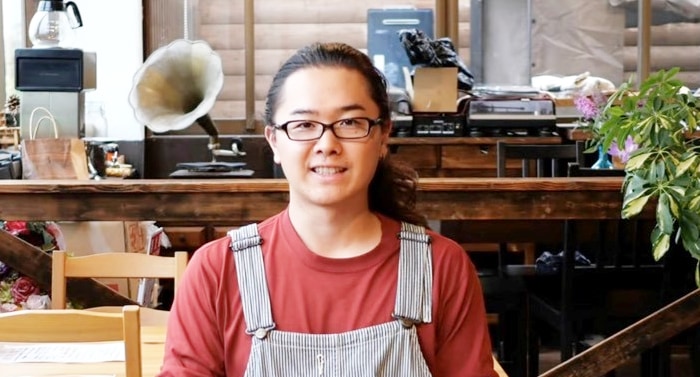
復興を志す 01
自分が次の世代に、この美味しさを残す。ファーマーそして農チューバーという挑戦。
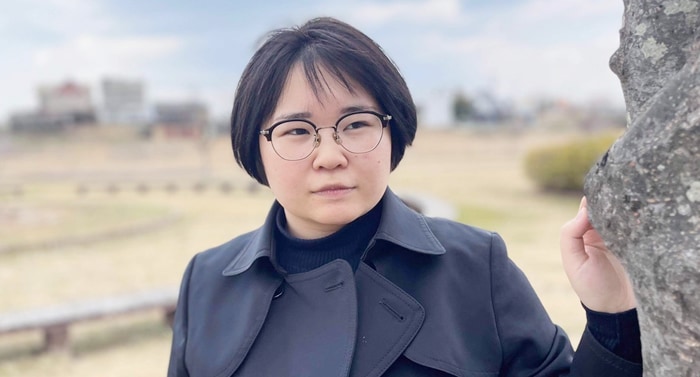
復興を志す 02
海外で得た「福島プライド」を、未来を担う子どもたちに伝えたい、育てたい。
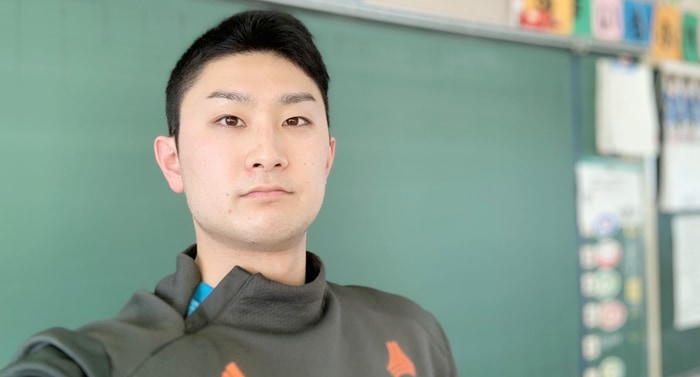
復興を志す 03
教える立場になった今、一番大切にしていること。「心を理解しようとすること」
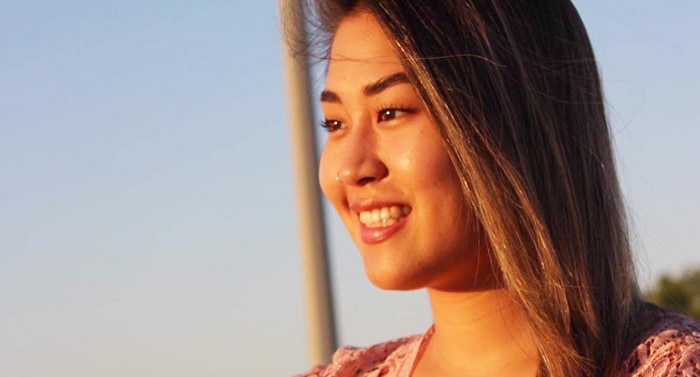
復興を志す 04
ドバイから、世界に通用する福島出身の日本人になりたい。
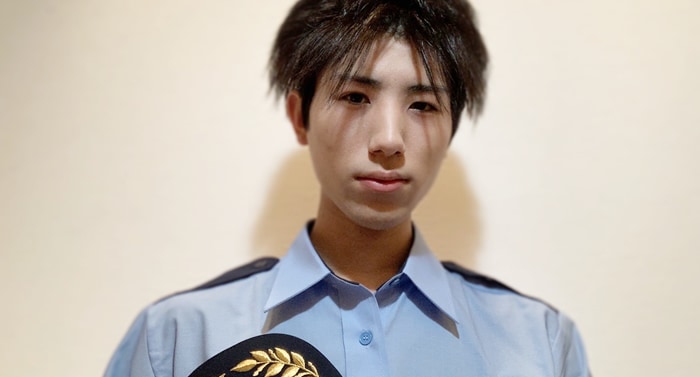
復興を志す 05
命が助かったからには、少しでも復興に役立つ大人になりたい
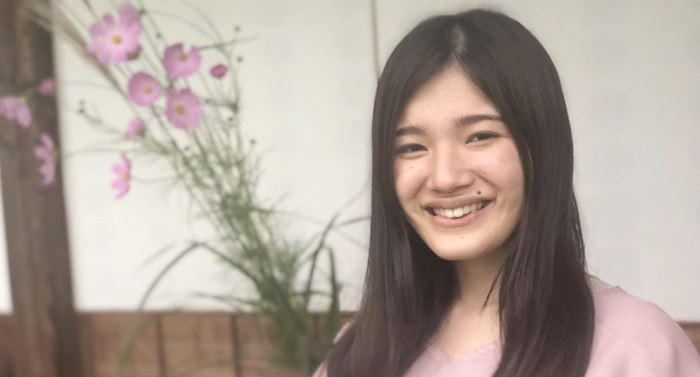
復興を志す 06
大人になった私が、今度は、地元・栗原の子ども達を応援したい
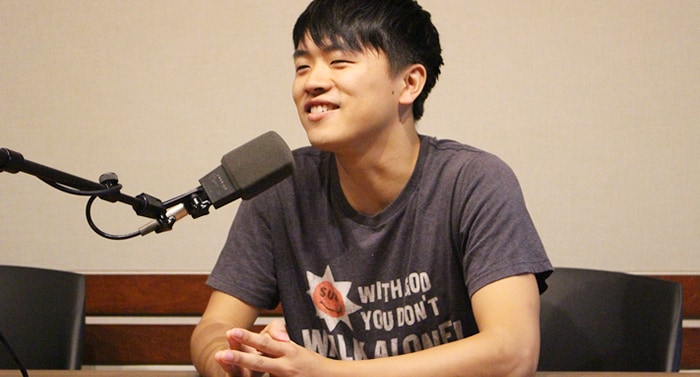
復興を志す 07
『恩送り』という、恩返しのカタチ。
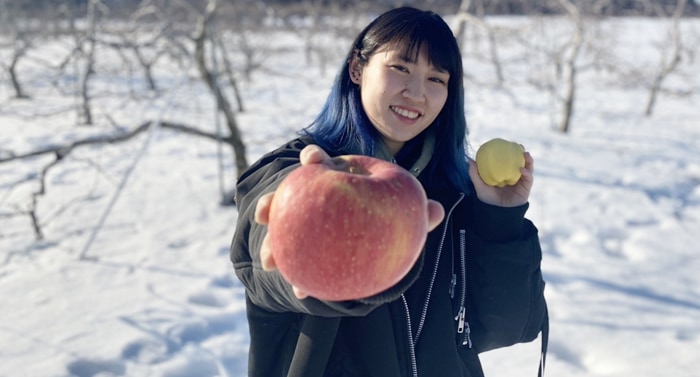
復興を志す 08
震災後の「あたりまえ」は、復興の軌跡
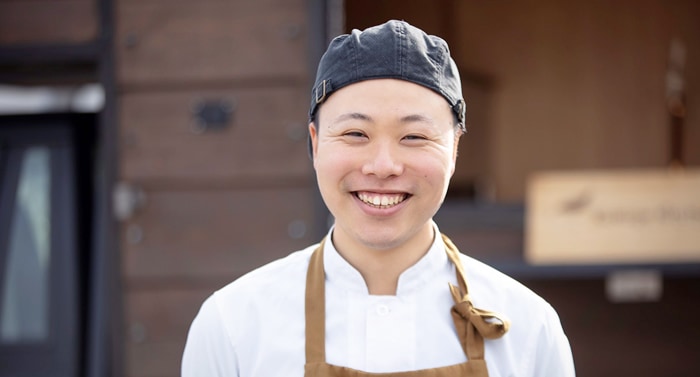
復興を志す 09
